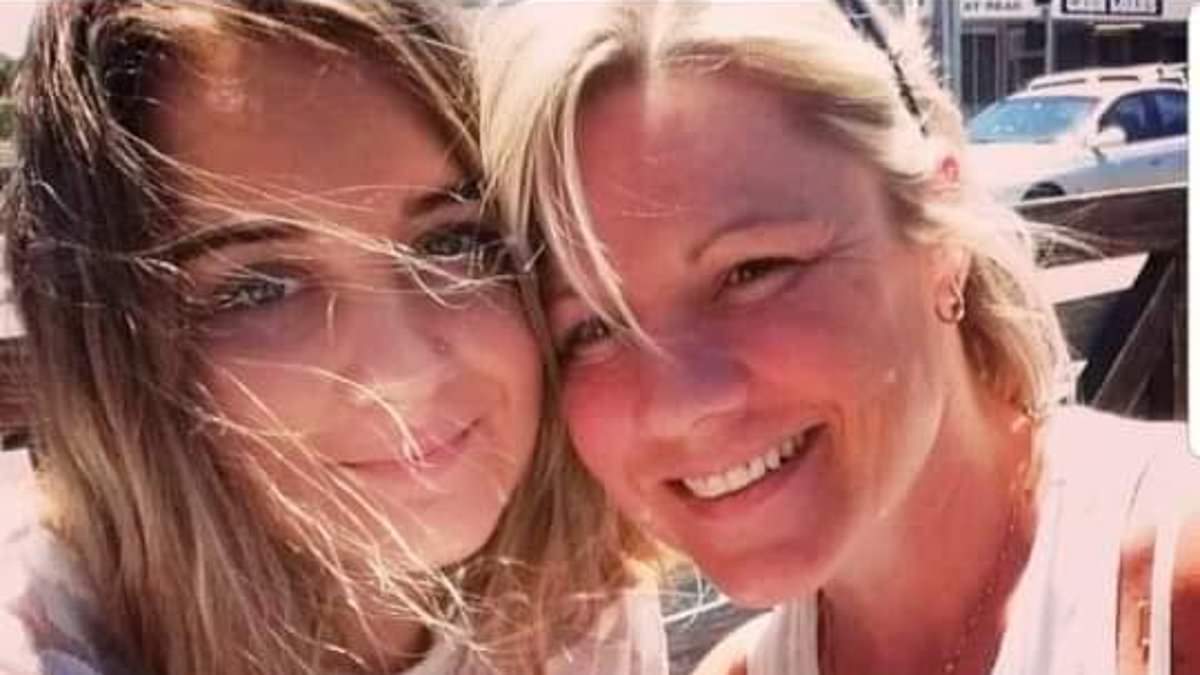A grieving mum turned accidental advocate says NSW must catch up to other states in implementing a pill testing program, unanimously stating: ‘It will save lives’.
It’s been more than four years since NSW-woman Jennie Ross-King lost her 19-year-old daughter Alex after she overdosed on three MDMA capsules at Parramatta-based FOMO music festival.
During a 2019 inquest into deaths at Sydney music festivals it was revealed Alex had told her friends she’d taken the unknowingly fatal dose prior to entering the event because she was scared about being caught by police.
Ms Ross-King, who says she isn’t pro-drugs and has never taken illicit drugs, believes her daughter’s death could have been avoided had she been better informed and received information about the signs of overdose, as well as the dangers of mixing MDMA and alcohol.
It is one of the reasons why she’s advocated for drug checking services, more commonly known as pill testing, where users can freely and legally have their substances analysed for composition, purity, and in some cases strength, before having a conversation with a medically-trained professional on harm minimisation and risks.
‘What better time to have a peer-to-peer conversation with a medical expert than when they’ve got that pill in their hand,’ says Ms Ross-King, speaking to NewsWire.
‘It’s when a young person is actually stopping for a minute and asking: ‘Hang on a minute, is this going to harm me, and if it could, what do I do about it’.
‘There were screenshots on her phone of the symptoms of overdosing on MDMA like overheating, and dizziness but that isn’t the same thing as getting that information from someone who’s credible and in a lab coat.’
Alex’s death also highlighted how little Ms Ross-King herself knew about drugs, which meant she was unable to have conversations about risk management and what to do if she overdosed.
‘There’s very little that I regret in life but I really wish I had taken drugs when I was a young person, because I would have had a little bit more experience, knowledge and credibility, so Alex could have come and spoken to me about it,’ she says.
‘I wish I had said that to her. Then we could have explored it together, spoken about the potential effects, and what to do if things went wrong.
‘The conversation I had with Alex (about drugs) would look very different today, with the information that I know now.’
Ms Ross-King’s comments come as Victoria Premier Jacinta Allen suddenly announced free and legal mobile drug checking services would be used at 10 sites over the summer festival period, with a permanent facility to be in operation from mid-2025.
In April this year, Queensland also opened a permanent site in the Brisbane CBD suburb of Bowen Hills, following the success of ACT’s CanTEST program which launched in 2022.
In light of Victoria’s change of heart – a state which has also historically been against drug checking – advocates have pressured NSW Premier Chris Minns to also consider further reform.
However the premier has delayed further changes until after a promised drug summit, the date of which has yet to be announced – much to the ire of community groups.
The Loop’s chief executive Cameron Francis says the Victorian government’s decision leaves NSW ‘out on their own’.
The organisation operates NSW’s first drug checking pilot at the Kings Cross Medically Supervised Injection Centre (MSIC), as part of a research project with the University of New South Wales, as well as Queensland’s Bowen Hills site.
‘Drug checking is a really common sense solution. It’s already been proven in and multiple times overseas,’ he says.
‘I really feel for the friends and families who have lost people at festivals, or those who have lost loved ones to drugs because we shouldn’t have to wait for another high profile tragedy to make this policy reality.’
Vocal campaigners of drug reform, Uniting NSW. ACT’s general manager of advocacy and external relations Emma Maiden says the organisation would offer its churches to host community-based services.
‘The summer festival season will be upon us before we know it and we should be taking the time now to plan a really good response,’ she said.
Ms Maiden made the point that Victoria and Queensland have enacted ‘commonsense decisions’ without ‘the need for a Drug Summit’.
‘It was pleasing to hear the Victorian Premier say that through drug checking that ‘If one life is saved it will be worth it,’ because that’s what we’ve been saying.
‘Ms Allan didn’t need a drug summit because the reality is that the evidence is there and the truth is that if one live is saved, it will be worth it.
‘We hope the NSW government looks at the evidence and doesn’t have to wait for a process in order to implement sensible evidence-based policy.’
When approached for comment, Mr Minns didn’t respond to direct questions on whether NSW would consider measures around drug checking, however historically he hasn’t ruled out potential reform.
He also refused to say when the state would announce its drug summit.
‘The biggest single issue hurting families across NSW right now is cost of living. That has to be this government’s focus,’ he said.
‘Funding is in the budget, and when we have details to announce, we will.’
Health Minister Ryan Park said planning for the summit was in progress.
‘I can assure the community that this summit is fully funded and that work is being done on this to ensure that we get it right,’ he said.
